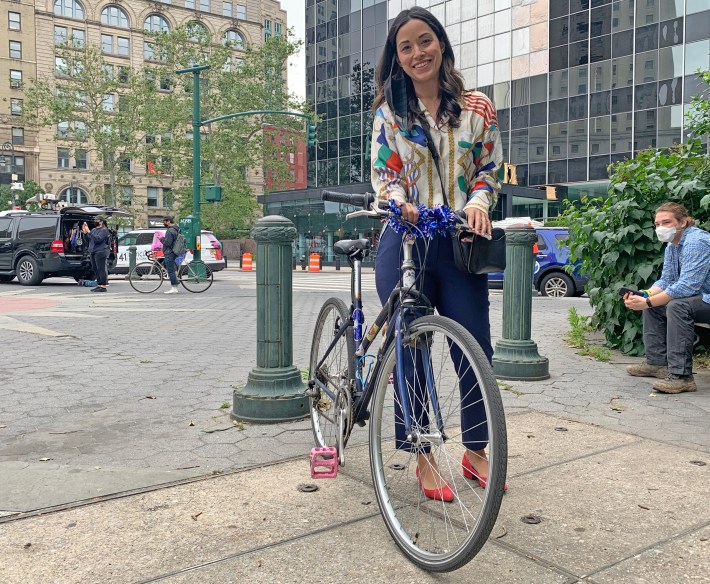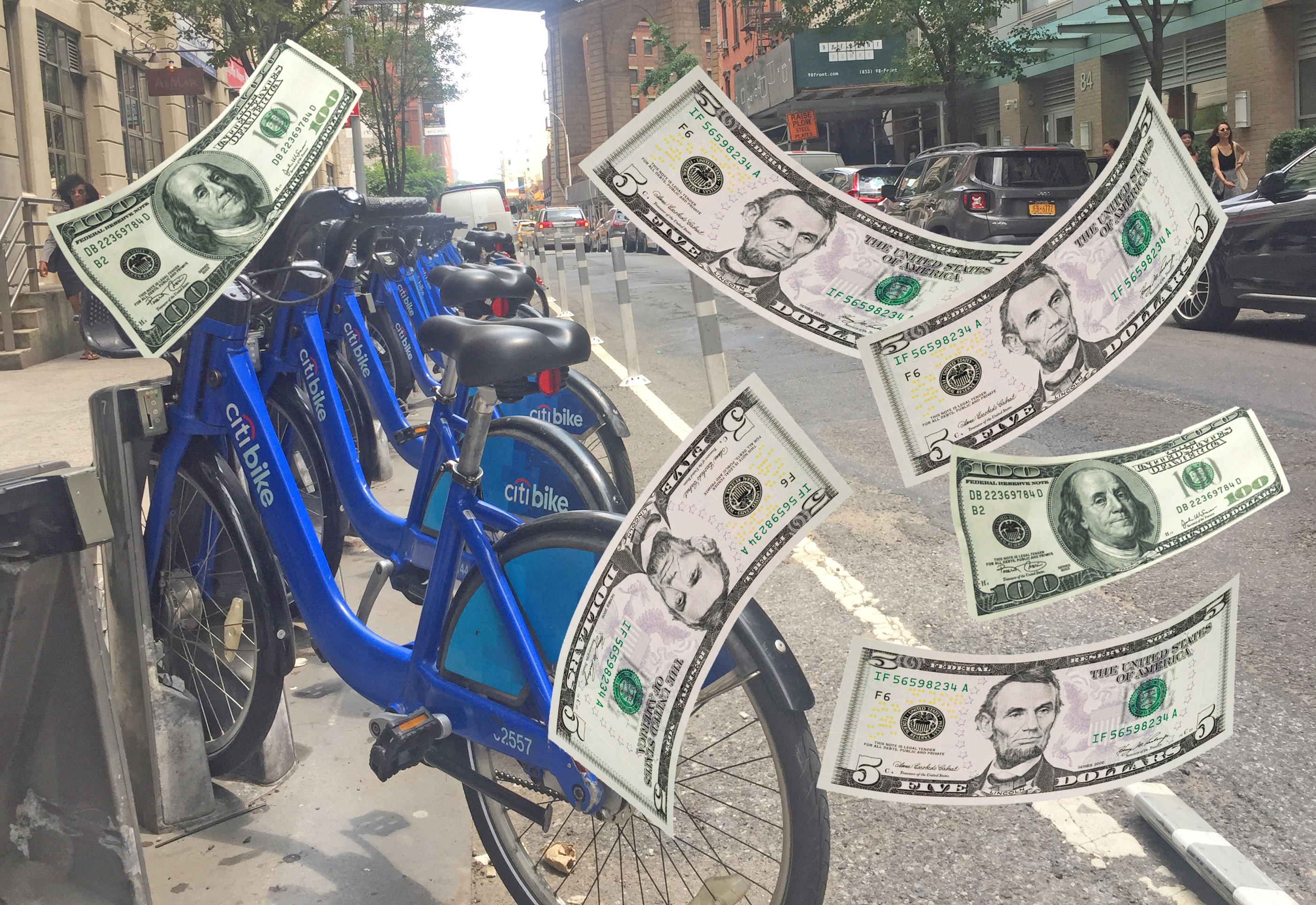The next Citi Bike fee hike won't come as a surprise to riders under a bill that's being introduced by a bike-friendly member of the City Council.
Council Member Carlina Rivera's bill would require hearings on all future Citi Bike fare-increase proposals, which would then be approved by the Department of Transportation. Rivera's idea would make Citi Bike price hikes subject to the same kind of public hearings that govern New York City Transit and Metropolitan Transit Authority fare hikes; Rivera pointed out that public hearings earlier this year delayed a planned MTA fare hike for some months.
"Having the the public oversight piece, allowing the average New Yorker, a working class, outerborough person to give public comment is going to be really important," she said. "With the bike boom, and what happened during during this pandemic, I think we all can agree that cycling is going to be a major component in the city going forward."

The proposed legislation comes as Citi Bike has emerged as a crucial transportation option during the pandemic, as many essential workers have relied on it in order to avoid using subways or buses or to travel during the hours of the overnight subway closures that started last May. At least one study has showed that lower-income workers have used bike share more heavily than other workers during the pandemic. A public-private partnership between Lyft and the DOT, Citi Bike does not get public subsidies, unlike the bus, train or NYC Ferry. The service experienced a pronounced boom in ridership early in the pandemic that has persisted with seasonal variations.
The economic effect of the bill is unclear. The bike-share system has raised its prices only modestly since prices jumped to $149 a year from $95 a year in 2014. Since then, the price of a yearly membership rose to $155 in 2016 (a four percent increase), $169 in 2018 (a nine percent increase), and $179 in 2020 (a six percent increase). Recently, the bike-share service changed the pricing structure for single rides, raising the price to $3.50 from $3, the first such increase of its kind since Citi Bike started. There were also tweaks that raised the cap on e-bike rides to $3 from $2 for members and actually lowered the price of e-bikes from 15 cents a minute to 12 cents a minute.
At the same time, a reduced-fare program, which provides memberships for $5 a month for public-housing residents and New Yorkers who use food stamps, has been untouched through the years of price hikes.
Citi Bike has begun to make inroads far from the Manhattan core, reaching into the south Bronx, western Queens and nearing the edge of southern Brooklyn in Bay Ridge. What was once a system with only 332 stations and 6,000 bikes has grown into a sprawling network of 1,200 stations and 19,000 bikes (including more than 2,000 pedal-assist bikes). Plans call for the system to expand to 40,000 bikes and as far as Corona in Queens and north of the Cross Bronx Expressway in the Bronx.
But even though the price increases to support those plans have been relatively mild, Rivera said the public needs a chance to weigh in as the bikes become a more central part of the city's transportation ecosystem.
"I know most of these price increases have been have been small, incremental changes to deal with increases in operation expenses as the system has grown into a system that now serves four out of the city's five boroughs," she said. "But I remember in 2014, Citi Bike, increased annual membership costs by 50 percent — and they did it with only 12 hours notice to the public. So there are clearly better policies we can implement than sending an email within a few hours notice."
The biggest catch in the bill, however, is that instituting the public-hearing rule would mean the DOT and Lyft would have to agree to open up the city contract governing Lyft's bike-share operation, which runs until 2029. Rivera said that Lyft might realize many gains from the legislation, not only by stoking public good will but also in terms of cold, hard cash and expansion opportunities.
"I think they want to be good partners to the city, and having more public oversight, I think is important to building that relationship. And I certainly think it could lead to conversations about a public subsidy," Rivera said. "Even a small investment could pay huge dividends, whether that comes in the form of keeping prices low or speeding up expansion projects."
For its part, Citi Bike seems to feel its done just fine so far with its own money and pricing decisions.
"Citi Bike is in the middle of a self-funded $100 million expansion with hundreds of new stations that will improve access to underserved neighborhoods, as well as a growing e-bike fleet that is already the largest in North America," said spokesman Jordan Levine. "We have and will continue to work in close partnership with DOT and other key stakeholders to ensure that we can maintain a self-sustaining system that gives even more New Yorkers equitable access to a world-class bike-share system."






